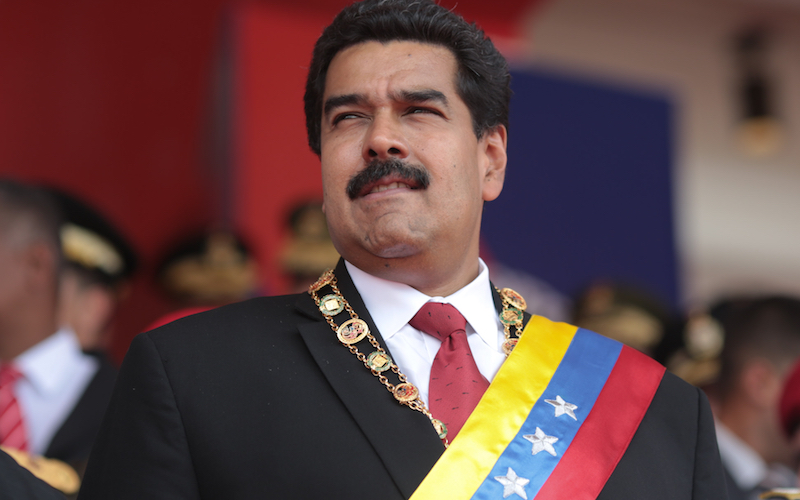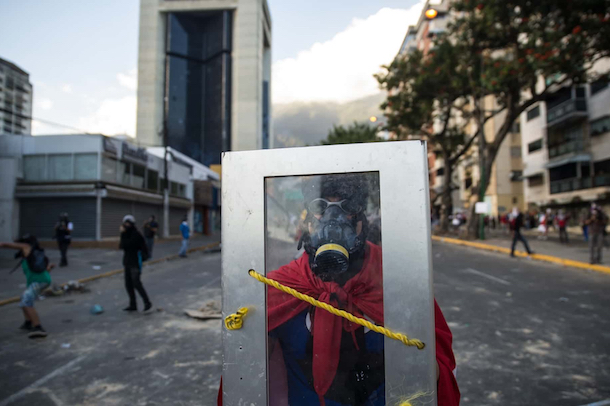
A Retrospective: Venezuela and the Arab Spring
In January, inflation in Venezuela had reached 800% and the GDP had dropped 19%. In May, there were 53 causalities as a result of ongoing protests. Last month, a police helicopter was stolen and used to assail the Venezuelan Supreme Court. For decades, economic mismanagement by the political elite and government corruption have plagued Venezuelan society. It goes without saying: Venezuela is in turmoil as protests rage on in the streets of Lara and Caracas.
Most of the conversation surrounding the crisis in Venezuela has been either politically or economically-oriented, and that is probably correct. Controlling inflation, diversifying Venezuela’s economy, and ousting Maduro should be prioritized if Venezuela hopes to dig itself out of the hole it finds itself in. But one aspect of the crisis that seems to be oft overlooked in the news is the role that oil plays in the ongoing violence in Venezuela.
According to the Energy Information Administration, at the start of 2017 Venezuela was ranked first in proven oil reserves in the world, registering a total of 300,878 billion barrels. It logically follows to many that oil provides a country with economic means and in turn should allow a country to thrive. Historically speaking however, that is not the effect that oil has had on states, especially those transitioning to democracy.
To understand what is happening in Venezuela, it is helpful to look back to 2011 and the burgeoning Arab Spring movement. Akin to Venezuela, oil played a large role in the success and failure of Arab states attempting to move towards democracy. Countries with less oil were more easily able to make this transition, while those with significant amounts of oil collapsed.
This theory of oil and authoritarianism has been long researched, notably In Michael L. Ross’ Foreign Affairs article “Will Oil Drown the Arab Spring?” where Ross discusses the relationship between oil and autocracies and how those ties can affect regimes. Throughout his article, Ross returns to the theory of the Oil Curse to support his claims, describing the curse as a phenomenon where “oil wealth leads to authoritarianism, economic instability, corruption, and violent conflict.” This “curse” seems to be afflicting Venezuela currently, just as it did to Libya during the Arab Spring.
The case of Libya during the Arab Spring is one that clearly demonstrates how oil can impede the transition from an authoritarian regime to a democracy. In the case of Libya, then Prime Minister Muammar Gaddafi, controlled immense amounts of wealth: a result of booming oil exports. While these funds could have been allocated for social work projects or augmenting the nation’s economy, Gaddafi used his wealth in ways that aligned with the Oil Curse theory. Gaddafi used Libya’s oil wealth to pay off rival tribe chiefs who threatened his power, as well as to finance private expenses. The number of backroom dealings conducted by Gaddafi during his reign as Libyan Prime Minister gradually increased over time, while transparency of government transactions and funds became cloudier.

Ultimately it was oil wealth that allowed Gaddafi to buy the loyalty of Libya’s military elite. With control of the military, Gaddafi was able to suppress protest movements with greater ease, and in doing so protract the burgeoning violence erupting in Libya. In Chris Hedges’ Wages of Rebellion: The Moral Imperative of Revolt, Hedges states that “While violence and terrorism are often part of revolutions, the fundamental tool of any successful revolt is the nonviolent conversion of the forces deployed to restore order to the side of the rebels.” In Libya, because of Gaddafi’s vast oil backing, conversion of military forces by rebels was an exceedingly difficult task – revolts have oft been stymied by state militias. For a revolt to be successful, rebel forces must win over the military. Oil often complicates this aim as the incumbent regime has the wealth to buy the military.
What’s more, there is now an ethos of revolution that exists in the world, which will only help to urge on the protestors in Venezuela. Overthrowing despots has become a reality in many countries, not simply just a pipe dream, and that will protract the violence in Venezuela as well.
Today, Libya is a battleground for rival militant factions, a target for regional airstrikes, and a breeding ground for conflict and corruption. By many definitions, Libya has become a failed state. What happened in Libya is occurring today in Venezuela. Maduro has control of the military due to his social capital and immense oil-generated wealth. The military loyalty to Maduro has protracted violence, intensified grievances, and possibly doomed the Venezuelan state.
The criteria for a failed state often consists of issues such as unregulated violence against the government, a government inability to provide public goods and services, a government inability to regulate its borders, a propensity to harbor non-state actors i.e. warlords and terrorists, and a rise in criminal violence and violence against the citizenry by the government. As we enter into the second half of 2017, Venezuela is well on its way to reaching this juncture.
With respect to a remedy, options are few and far between. Venezuela’s departure from the Organization of American States (OAS) has nullified hopes for a diplomatic resolution to the crisis – like in the Middle East, Venezuela felt that the multilateral organization was encroaching on its state sovereignty. This is problematic because the U.S. now has a vested interest in Venezuela – oil, like other commodities, is tied to an international market and if the home of the world’s largest collection of oil reserves fails, the market could be severely affected.
Intervention via sanctions is an option, but rarely do sanctions result in true policy change. What Venezuela needs, at least at the outset, is robust economic reform, and sanctions will likely not provide that.
If Venezuela is resistant to a multilateral aid effort, and sanctions do not promise positive returns, it may stand to reason that Venezuela must figure out these issues on its own. This may be a seminal moment in Venezuelan history, where deep seated issues in Venezuelan society come to the surface, and much needed structural change finally gets done. It seems as though this violence and turmoil is inevitable – with oil (especially in such great quantities) and a move towards democracy comes resistance and uproar.
While Trump has neglected to comment much on the situation in Venezuela, it will be an increasingly important issue to keep tabs on. The effects of the outcome in Venezuela will affect many states both politically and economically.
